Operation Type: Minimally Invasive Surgery
Anesthesia: General
Duration of the process: from 45 to 60 minutes.
Bariatric Surgery
Bariatric Surgery Obesity is one of the most common diseases in society. When excess weight reaches the stage where it affects your health and causes or worsens some health problems, it is considered pathogenic obesity.
Obesity is not just the result of overeating. There are many contributing factors such as genetics, metabolism and taking certain medications. Studies have shown that diet and exercise programmers have limited long-term success for obese individuals.
Weight loss surgery or bariatric surgery is the most effective treatment for pathological obesity, and obesity surgery with a healthy lifestyle change can significantly decrease weight and improve overall health.
Bariatric surgery refers to a range of surgical and non-surgical procedures performed in order to get rid of excess weight. Al Kindi Hospital specializes in surgical treatment for obesity and health complications associated with weight gain.
Al Kindi Hospital is proud to be the number one destination for obesity surgeries in the region, having recorded many success rates in obesity surgery and weight loss operations.
Who are the candidates for bariatric surgery?
Bariatric surgery is a medical treatment for obesity, overweight and associated problems such as:
- – Diabetes
- – High cholesterol
- – High blood pressure
- – Sleep apnea
Eligible cases for bariatric surgery are:
- – If your BMI is equal to 40 or more or
- – If your BMI is 35 or more with one or more health conditions associated with obesity (e.g. diabetes or cardiovascular disease)
Diagnosis and treatment
The medical team at Al Kindi Hospital has high experience in diagnosing and treating obesity and weight gain-related health complications.
Diagnosis of bariatric surgery
After being referred to bariatric surgery at Al Kindi Hospital, the patient is initially evaluated by dietitians and thyroid specialists. Once the appropriate lifestyle program has been developed, some patients may also undergo a heart and lung health assessment.
After these tests are completed, it is determined whether the surgery is appropriate for the patient and what type of bariatric surgery he needs.
Treatment options
The Department of Bariatric Surgery at Al Kindi Hospital offers the following surgeries for the purposes of treating obesity and associated diseases such as diabetes, high blood pressure, etc.

Laparoscopic Sleeve Gastrectomy
Method: The surgeon cuts part of the stomach (the part responsible for secreting the appetite hormone & food storage). The cut part is then excised out of the body, leading to a reduced stomach size and a reduction in appetite.
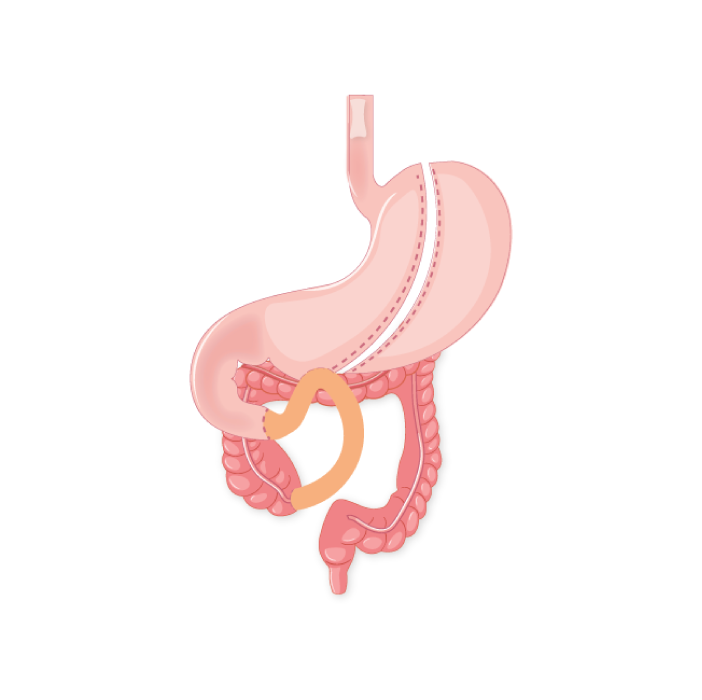
SASI: Single Anastomosis Sleeve Ileum bypass
Surgery type: laparoscopic minimally invasive
Anesthesia: general Procedure
Duration: 60 minutes
Hospitalization: 2 nights
Procedure: the surgery is a mix between gastric sleeve and gastric bypass surgery. It is performed laparoscopically by connecting the pylorus (lower part of the stomach) to the ileum (lower part of the small intestine) thus bypassing the duodenum (beginning) and jejunum (middle) of the small intestine, without detaching the stomach.
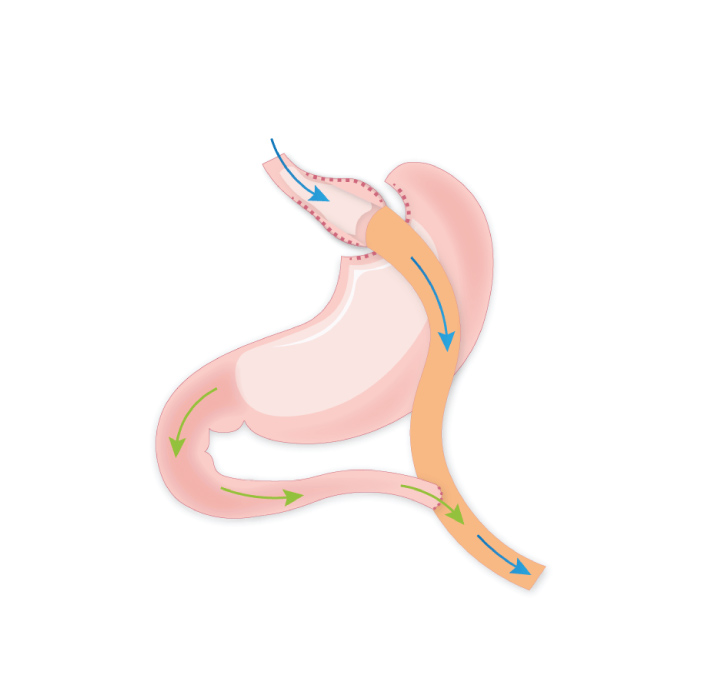
Laparoscopic Gastric Bypass
Operation: Minimally Invasive surgery
Anesthesia: General Operation
Time: 90 minutes.
Method: The surgeon changes the path of the small intestine, which prevents the absorption of food and thus aids in significant weight loss.
Result: The procedure helps you lose about 10 kilograms per month and reach your ideal body weight within a year after surgery (approximately).
Note: This procedure may cause diarrhea due to poor absorption by the intestines and the patient should continue to take vitamins and nutritional supplements to compensate for the nutrients that may be lost.
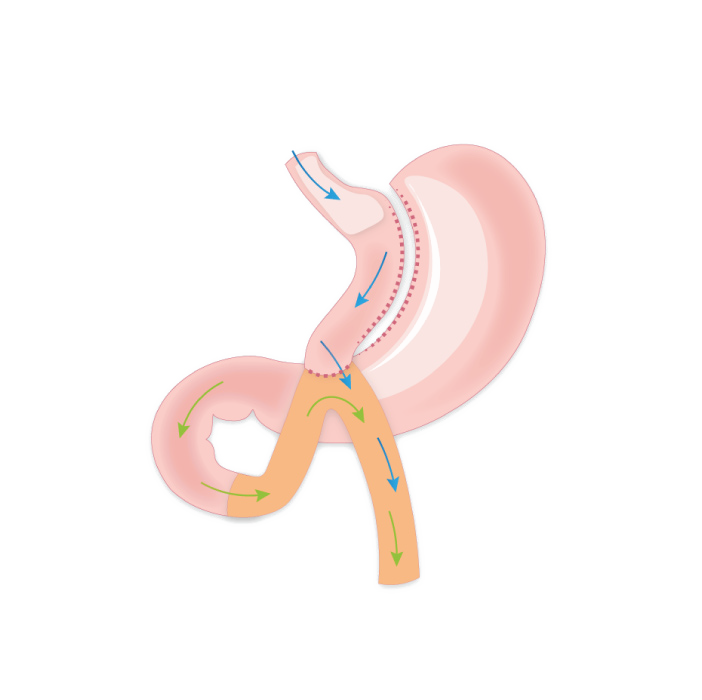
Laparoscopic Mini Gastric Bypass
Anesthesia: General Operation
Time: 60 minutes.
Method: The procedure reduces the size of your stomach restricting the amount you can eat, and also reduces absorption of food by bypassing up to 6 feet of intestines which helps in weight loss.
Result: The procedure helps you lose about 10 kilograms per month and reach your ideal body weight within a year after surgery (approximately).
Notes: – No part of the gastro intestinal system is removed. – The procedure is reversable. – Helps resolve co morbidities that have resulted from obesity such as diabetes, hypertension, knee and back pain and infertility.
Procedure may cause diarrhea due to poor absorption by the intestines and the patient should continue to take vitamins and nutritional supplements to compensate for the nutrients that may be lost.

Laparoscopic Butterfly Gastroplasty
Anesthesia: General Operation
Time: 30 minutes
Hospital stay: 1 night
Method: Staples are distributed on both sides of the upper side of the stomach reducing its size, thus reducing the amount of food eaten and helps in weight loss.
Results: the procedure helps you lose about 10 kilograms per month and reach your ideal body weight within a year after surgery (approximately).
Notes: – No part of the gastro intestinal system is removed. – The procedure is reversable. – The procedure can be changed to Sleeve Gastrectomy or Gastric Bypass – Helps resolve co morbidities that have resulted from obesity such as diabetes, hypertension, knee and back pain and infertility.
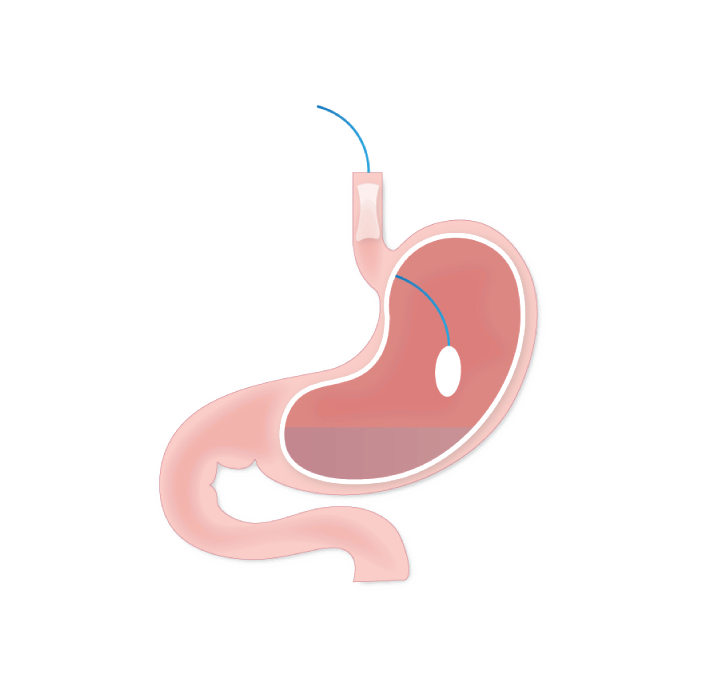
Smart Endoscopic Capsule
Anesthesia: not needed Operation Time: 15 minutes
Method: the capsule is swallowed by the patient with a little bit of water. The capsule is connected to a catheter which is used by the surgeon to fill the capsule with fluid. The capsule is excreted out of the body automatically after 4 months
Results: helps you lose 15-20 kilograms within 4 months
Notes: -No part of the gastro intestinal system is removed.

Laparoscopic Gastric Banding
Anesthesia: General Duration of the process: 30 to 35 minutes.
Method: The surgeon places a loop on the upper part of the stomach which minimizes the size of the stomach where food is accommodated. This reduces the amount of food consumed with each meal and thus helps you lose weight.
Result: the procedure allows you to lose about 10 kilograms per month and reach your ideal body weight long as you follow up with the surgeon and continue to tighten the band (every 4 to 6 weeks).
Removal: There is no need to remove the band after reaching your ideal body weight.
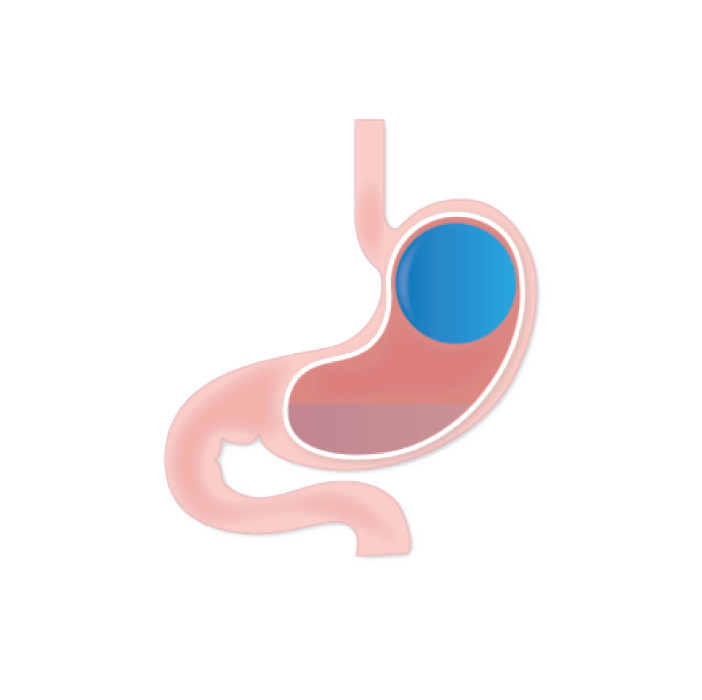
Endoscopic Gastric Balloon
Process: Non-invasive
Anesthesia: Local Duration
Time: 20 to 25 minutes.
Method: the balloon is endoscopically inserted into the stomach via the mouth and the oesiphagus. It is filled with fluid which inflates the balloon in the stomach. The balloon thus takes up a volume of the stomach cavity and reduces the amount of food in a meal. The balloon can stay in the stomach to up to 6 months after insertion.
Post-Bariatric Surgery
Patients eligible for bariatric surgery can be assured that Al Kindi Hospital provides comprehensive and specialized care for patients before and after bariatric surgery. Our staff are highly experienced in performing obesity surgeries and providing comprehensive support to obese patients before, during and after surgery.
Healing and hospital stay
Depending on the type of procedure and the patient’s health condition, the amount of recovery time and hospital stay varies, and the patient is usually discharged from hospital 24 hours after the procedure. The patient also remains under the follow-up of a qualified and integrated medical team at the hospital, including consultants in bariatric surgery and dietitians.
Many patients return to their normal daily activity one to two weeks after surgery, but each individual is different, and patients should always consult a doctor before starting any new activities.
Postoperative nutrition and care plan
Once discharged from hospital, patients move after surgery to progressive stages of the postoperative nutrition plan. Our dietitian provides full support and consultation to patients every step of the way after surgery. The bariatric surgeon will determine the required medical examinations and appointments after surgery.
Continued support
Al Kindi Hospital and its comprehensive bariatric surgery team are committed to being part of your weight loss journey whenever you need them. A follow-up program for obese patients is available to help you in the weeks and months following surgery.
Health Benefits of Bariatric Surgery
Obesity leads to many life-threatening health problems. Studies indicate that the risk of early death for those who are obese is twice the risk of early death of people of normal weight.
Many obesity-related health conditions can be treated through bariatric surgery and excess weight removal.
Bariatric surgery has proven to treat or reduce the incidence of the following diseases:
- Migraines.
- Depression.
- Sleep apnea or shortness of breath.
- Hypercholesterolemia.
- Fatty liver disease.
- Cardiovascular disease
- High blood pressure.
- Esophageal reflux.
- Type 2 diabetes
- Ovarian cyst syndrome.
- Incontinence.
- Gout.
- Joint diseases.
Talk to bariatric surgeons at Al Kindi Hospital about the potential health benefits of your bariatric surgery.
Our mission
Our mission is to provide high quality care with a respect for the privacy of patients with pathological obesity and improve their quality of life through a weight loss program that includes surgical options for weight loss and lifestyle changes.
Vision
The Department of Bariatric Surgery should be one of the first departments to provide specialized and integrated care with high quality results and a unique experience for patients.


